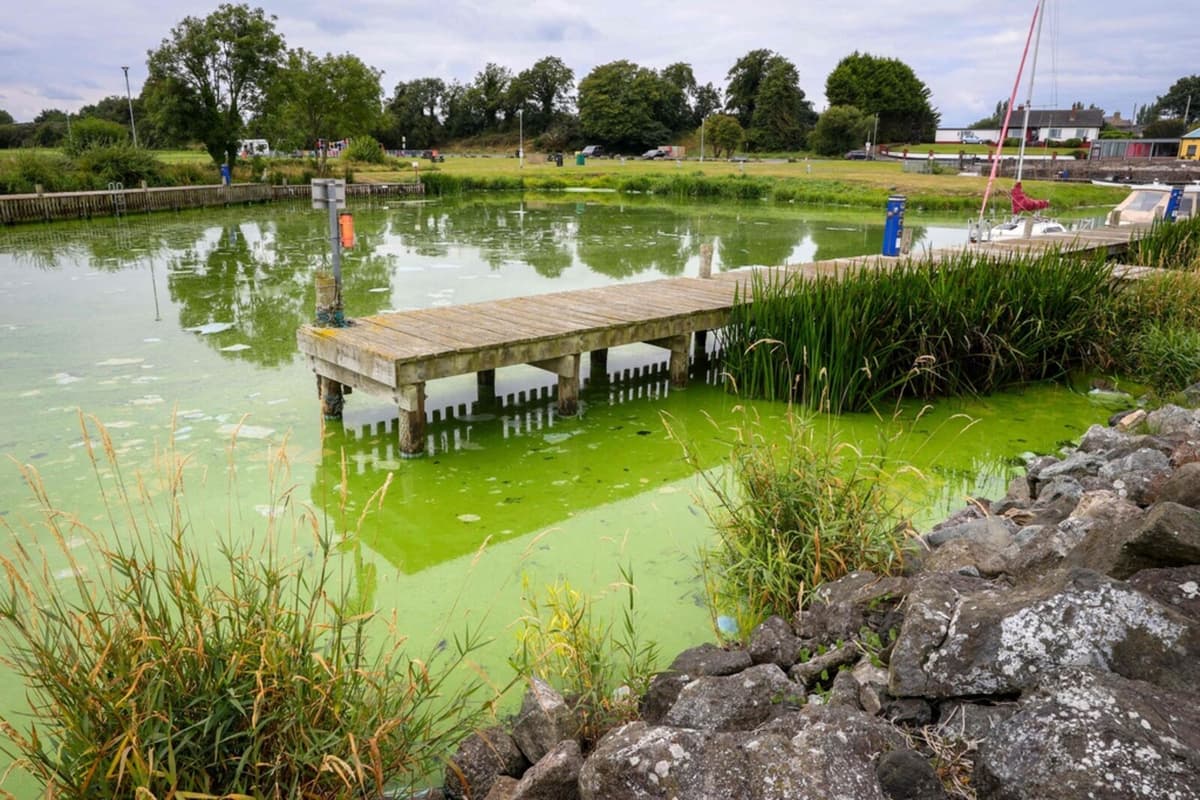With its nearly 400 square kilometers, Lough Neagh is Ireland's and the British Isles' largest lake.
For at least three years, algal blooms have been a problem for the lake – but this year it is worse than ever, according to the people who live and work in the area.
Protest groups are demanding that the authorities act faster, and that an independent environmental authority that protects the lake should be established, writes BBC.
The algal blooms are causing problems for the lake's wildlife. Europe's largest eel fishery has been forced to pause its operations and local fishermen's incomes have decreased by 60 percent since 2023, according to The Guardian.
The lake used to be full of trout, but it is not anymore, says fisherman Mick Hagan to the news agency AFP.
Northern Ireland's agricultural authority had in August registered around 40 findings of potentially toxic cyanobacteria during 2025.
Algal blooms occur naturally in lakes like Lough Neagh. However, experts believe that the situation at the lake has been exacerbated by pollution from, among other things, agriculture. Climate change has also contributed.






